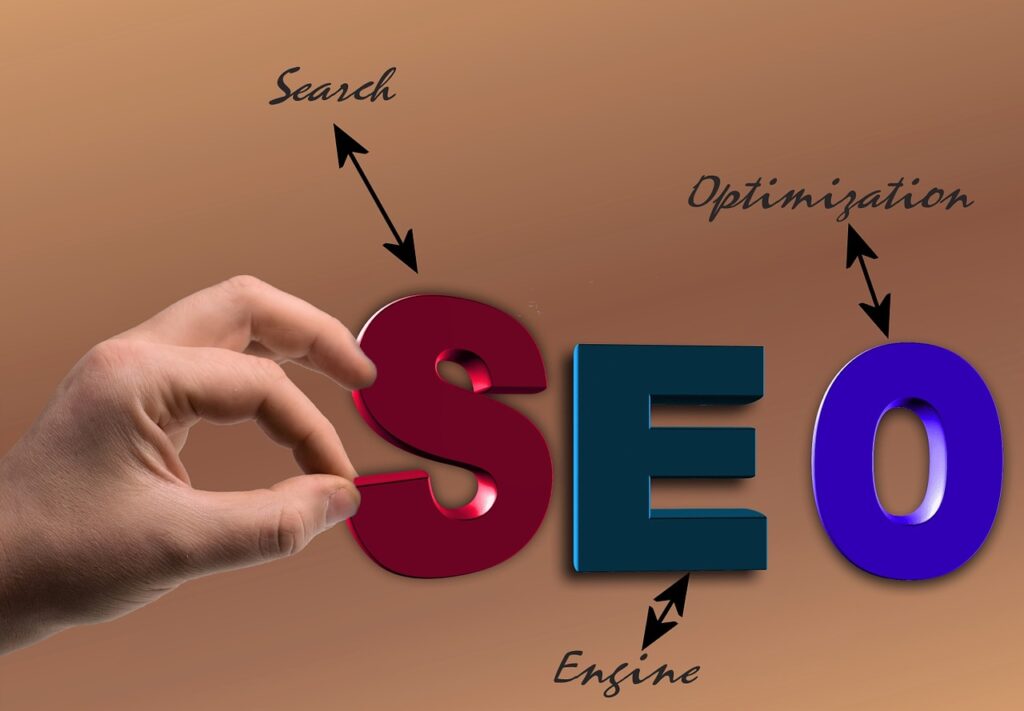The competition in the ecommerce sphere is fiercer than ever. To make a mark and succeed in the online retail world, you need a strategic approach. One of the most powerful tools at your disposal is Search Engine Optimization (SEO). By harnessing the power of SEO, you can increase ecommerce sales, drive organic traffic, and achieve long-term success. In this comprehensive guide, we will explore the various strategies and techniques that can help you do just that.
Understanding the Basics of Ecommerce SEO
Choosing the Right Keywords When it comes to increasing ecommerce sales, the journey begins with selecting the right keywords. These keywords are the bridge that connects potential customers to your products. Utilize tools like Google Keyword Planner and SEMrush to conduct in-depth keyword research. Identify the high-converting keywords that align with your product offerings. By optimizing your website for these keywords, you can improve your visibility in search engine results pages (SERPs) and attract more relevant traffic to your ecommerce store.
Optimizing Product Pages Your product pages are the heart of your ecommerce business. They need to be meticulously optimized for SEO to maximize conversions. Start by crafting compelling and SEO-friendly product titles and descriptions. Make use of high-quality images and ensure they are optimized for quick loading, as slow-loading pages can deter potential customers. Moreover, create a user-friendly navigation system that makes it easy for visitors to find what they’re looking for and ensure a smooth and hassle-free checkout process.
Off-Page SEO Techniques
Building High-Quality Backlinks Off-page SEO plays a crucial role in increasing ecommerce sales. One of the most effective off-page strategies is building high-quality backlinks. Develop a well-thought-out backlink strategy that includes reaching out to influencers in your industry, engaging in guest posting, and leveraging partnerships with other reputable websites. High-quality backlinks not only enhance your site’s authority but also drive more organic traffic, which can lead to increased sales.
Social Media Promotion In today’s digital landscape, social media is an essential component of ecommerce marketing. Sharing your products and content on social platforms can significantly boost your online presence and ultimately your sales. Engage with your audience through social media platforms and encourage sharing to expand your reach. This not only helps in increasing brand awareness but also creates a community of loyal customers who can help amplify your sales efforts.
Technical SEO for Ecommerce
Website Speed Optimization The speed at which your ecommerce website loads is critical. Slow websites can lead to high bounce rates and missed sales opportunities. To prevent this, enhance your website’s loading speed by compressing images, utilizing content delivery networks (CDNs), and implementing browser caching. A fast and responsive website not only pleases your customers but also gets a thumbs-up from search engines.
Mobile Responsiveness Mobile commerce, or m-commerce, is on the rise. Ensure that your ecommerce website is fully mobile-responsive to cater to the growing number of mobile shoppers. Responsive design ensures that your site looks and functions well on various devices, from smartphones to tablets. Google’s mobile-first indexing means that mobile-friendliness is not just a nice-to-have but a must-have for SEO success.
Content Marketing for Ecommerce
Blogging and Content Creation Content marketing is a powerful tool for increasing ecommerce sales. Start a blog that provides value to your audience by sharing industry insights, tips, and product information. Optimize your blog posts for SEO by incorporating relevant keywords and internal links to your product pages. This strategy not only drives organic traffic but also positions your brand as an authority in your niche.
Product Descriptions and Reviews Well-crafted product descriptions and customer reviews are not only useful for your customers but also for search engines. Create detailed, persuasive product descriptions that provide valuable information to potential buyers. Encourage customers to leave reviews and ratings, as this not only builds trust but also provides fresh, user-generated content, which can improve your SEO rankings.
Monitoring and Continuous Improvement
Tracking Key Metrics To increase ecommerce sales consistently, it’s essential to monitor key metrics. Keep an eye on performance indicators such as organic traffic, conversion rates, and revenue. Google Analytics and e-commerce tracking tools are invaluable for gaining insights into your ecommerce store’s performance. Regular tracking and analysis help you make informed decisions to enhance your online sales.
A/B Testing and Optimization The digital landscape is ever-evolving. To stay competitive and continually increase ecommerce sales, it’s crucial to embrace change and optimization. Implement A/B testing to compare different versions of your website elements and make data-driven decisions. By constantly improving your website and user experience, you can adapt to shifting trends and deliver what your customers are looking for.
In conclusion, SEO is a game-changer for increasing ecommerce sales. By selecting the right keywords, optimizing your product pages, using off-page strategies, ensuring technical excellence, leveraging content marketing, and continually monitoring and improving, you can maximize your online store’s potential. Embrace SEO as an ongoing strategy, and you’ll be on the path to sustainable growth in the competitive world of ecommerce.


